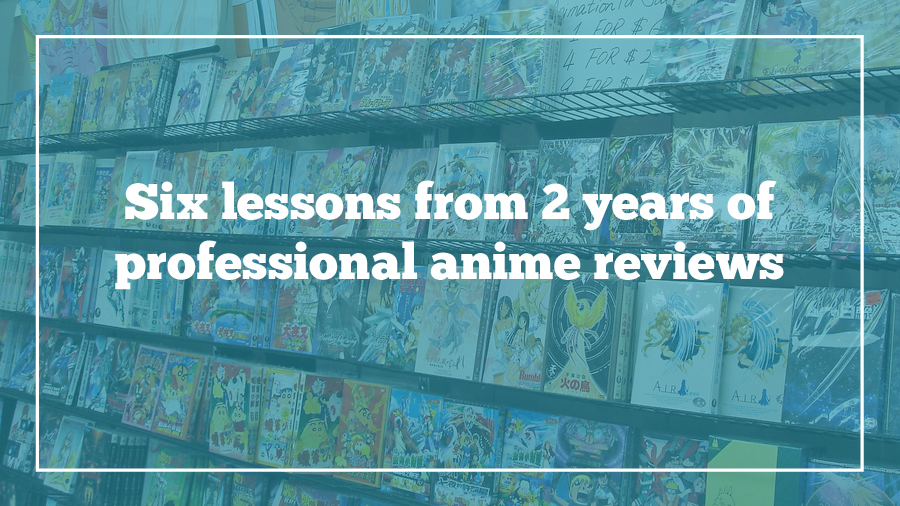
- This is a cry for help: it’s been fewer than three weeks and I’ve already watched 40+ episodes of Hunter x Hunter (which I am pronouncing “Hunter Hunter” until I hear otherwise). I want to protect these children’s smiles, and also my Lyft driver said he was also watching it, which feels like a sign.
- Of course, I only have time to watch this show now, before the fall 2016 season begins and I’m sampling everything, at least for the first three episodes. For some closure on the season that just ended, I just wrote up my Best and Worst of Summer 2016 opinions for Anime News Network if you’re curious. Also on Anime News Network: my Gundam Reconguista in G review.
- We talk a lot about production budgets and smooth animation these days, but I’ll always remember that I got into anime because it was cheap and different and weird. Which is why I’m looking forward to Gakuen Handsome, a crowdfunded game-turned-anime that parodies the BL genre. It has all the hallmarks of a bizarre fan project. Other new shows I want to watch: everything with sports in it. EVERYTHING.
- Power, Kindness, & Adulthood in Mob Psycho 100. Isaac’s Crunchyroll column explores the humanity inherent in the story of my favorite anime of the season. This is embarrassing, but my favorite fanfic right now isn’t even about romance; it’s a story where Reigen turns out to be Mob’s dad. For all his fraud, Reigen is a good mentor.
- No Middle Sliders: Body Diversity in Anime. I usually wear an extra-small in US sizes, but when I was shopping in Japan, I wore a medium. Women in Japan are definitely more petite than here, but they’re certainly not all built the same way. Caitlin writes about the anime that are beginning to portray a wider selection of bodies.
- Definitely missed this the first time around. Here’s an older post about otaku sexuality by Frog-kun that normalizes attraction to 2D characters without making it weird. Because really, we’re not weird for liking 2D characters. It just means we’re able to empathize with our media.
- Just started reading Shattered Starlight, a webcomic about a badly behaved grown-up magical girl. There is definitely a riff on Madoka Magica going on there.
- My Son, the Prince of Fashion. An author I love writes about taking his sartorially-gifted son to Paris Fashion Week and the result is a story about fandom, family, and finding your people.
Screenshot via Hunter x Hunter







